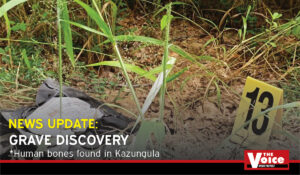The United States government has markedly increased its involvement in crafting the Lobito Corridor, a strategic trade route intended to energize the movement of green energy resources across the Southern African terrain.
Stretching an impressive 1,300 kilometers from Angola’s Atlantic coast to the Democratic Republic of Congo (DRC) and Zambia, this pathway is designed to bolster the export of vital minerals, such as copper and cobalt, which are pivotal for the green energy sector’s expansion.
As per a recent Maritime Executive article, during a forum in Lusaka hosted by the G7’s Partnership for Global Infrastructure and Investment (PGI), the U.S. International Development Finance Corporation (DFC) unveiled a $250 million debt facility aimed at improving infrastructure, with a sharp focus on the Lobito Corridor.
This initiative underscores the corridor’s potential in connecting the Copper Belt to international markets, presenting an alternative to the congested routes to South Africa’s Durban port.
Nonetheless, the corridor’s establishment is overshadowedby significant environmental concerns, threatening to inflict irreparable harm on Angola’s fragile ecosystems.
THE ENVIRONMENTAL CROSSROADS
Angola, celebrated as the most densely forested realm in its basin, is a haven for extensive tropical rainforests, especially prominent in the northern territories.
Despite enduring periods of isolation and the absence of formal forestry inventories since 1975, these forests now confront the spectre of accelerated deforestation.
As detailed in a GRID-Arendal report, the country has observed a troubling decline in forest and woodland areas, dwindling at a rate of two percent between 1990 and 2010.
The ambition to forge the Lobito Corridor threatens to intensify this downward spiral, raising alarms over the sustainability of such developmental endeavours.
MIOMBO WOODLANDS AT A CROSSROADS
The sprawling Miombo woodlands, intrinsic to Angola’s natural legacy, are at a juncture of significant alteration.
These woodlands, which saw preservation and even slight expansion during Angola’s protracted civil conflict, are now succumbing to large-scale conversion for agricultural and charcoal production purposes.
Infrastructure development, particularly in the domain of transportation, has emerged as a pivotal driver of deforestation, especially with the expansion of roads and railways.
Historical instances, such as the Benguela railway’s construction, foreshadow the potential deforestation trajectory ushered in by the Lobito Corridor.
THE TOLL ON NATURE
The Lobito Corridor’s fruition portends a bleak future for Angola’s environmental canvas.
From 2002 to 2022, Angola witnessed the loss of 169,000 hectares of humid primary forest, accounting for 4.7% of its total tree cover loss during the period, according to Global Forest Watch.
The dwindling of primary forests, vital for counteracting climate change, indicates a distressing trend that may be exacerbated by the corridor’s development. This deforestation is poised to disrupt ecosystems, provoke drought, and diminish biodiversity.
Angola’s diverse fauna, including numerous mammals and birds, faces extinction threats as their habitats erode.
Thus, the corridor emerges not just as an infrastructural venture but as a potential harbinger of ecological decline, showcasing the stark dichotomy between development aspirations and environmental preservation.
A CONCLUSIVE WARNING: THE COST OF PROGRESS
The Lobito Corridor, while heralded as a beacon of economic and infrastructural advancement, casts a long shadow over Angola’s environmental future.
The corridor is not merely a pathway for trade but a potential catalyst for an environmental disaster, signalling the dire consequences of prioritizing short-term gains over the long-term health of our planet.
The projected deforestation, the annihilation of habitats, and the inevitable ecological imbalance stand as a stark indictment of the project.
It is a grim reminder that the relentless pursuit of profit, masked as development, can lead to irreversible damage to the earth’s biodiversity and ecosystems.
As Angola stands at the precipice of this environmental precipice, the creation of the Lobito Corridor emerges as a misguided endeavor, a logistical horror that prioritizes commercial interests at the expense of ecological integrity.
The stark reality is that investors in the corridor turn a blind eye to the environmental carnage in their quest for financial returns.
This corridor, therefore, stands as a testament to a broader systemic failure—a failure to recognize that true progress cannot be measured solely by economic metrics but must account for the preservation of our natural world.
The time is now to halt the march toward this environmental disaster and rethink the path forward, ensuring that future generations inherit a world not depleted but enriched, not endangered but thriving.
Odenge is an Independent Journalist and Writer.





















